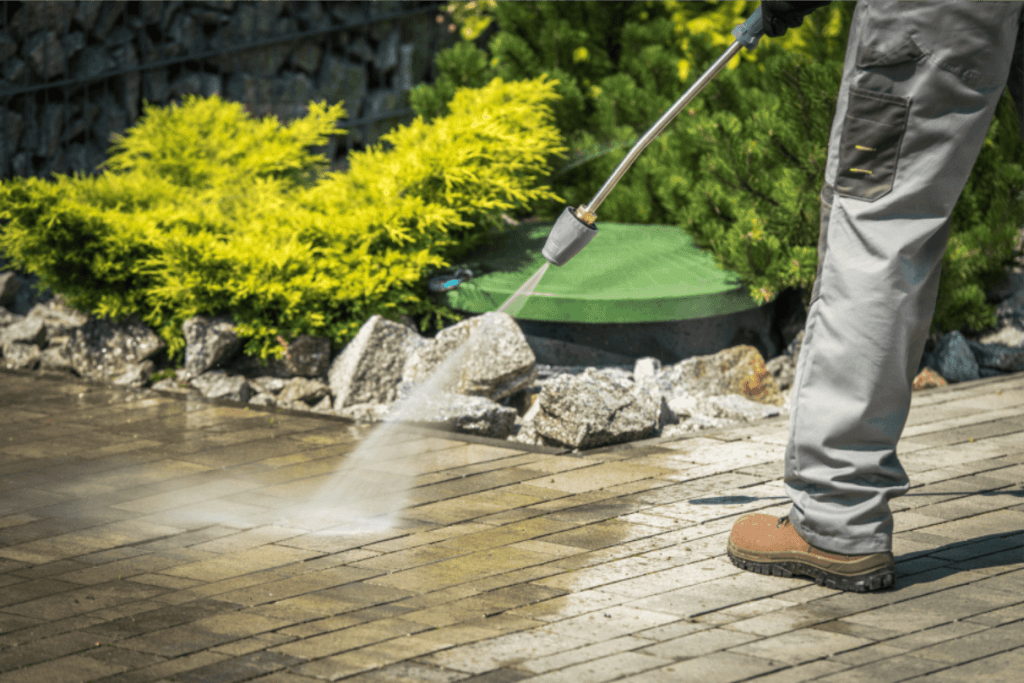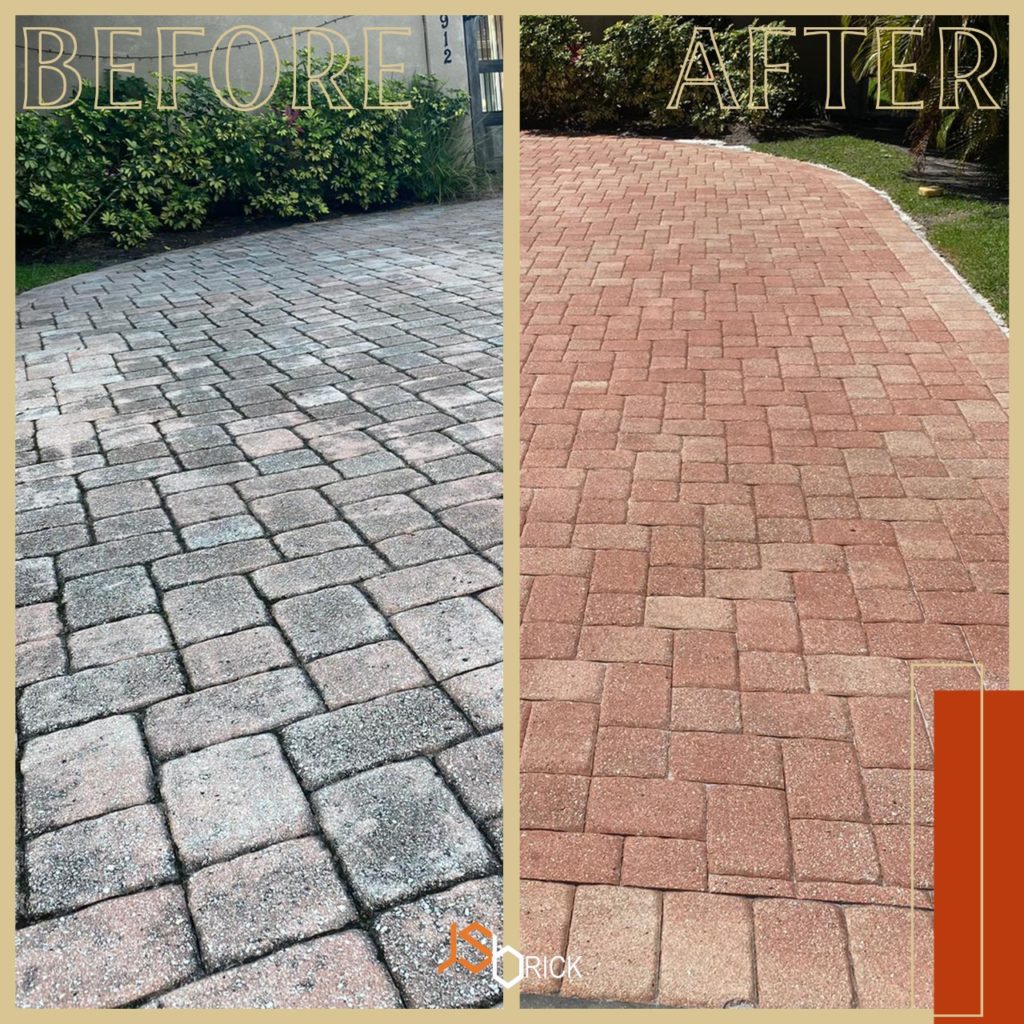How To Clean Pavers With A Power Washer
Just like any other surface, pavers are also always susceptible to dirt. Especially in outdoor areas, it's very common to see dust accumulation, and when it comes to pavers, it is natural that other types of unwanted "dirt" start to appear.
Weeds growing at the joints, mold, moss; they are just a few examples of unwanted presences on our pavers. And one of the most common methods of cleaning them is with a pressure washer. You just need to turn on the washer and go clean everything that stands in your path, right? No!
Although it seems easy, it's important to remember that for every cleaning method, you must follow a series of guidelines to make sure you're not damaging your pavers, especially when pressure washing.

Is It OK To Pressure Wash Pavers?
As long as it's done carefully, cleaning pavers with a pressure washer is ok. However, it's important to remember that after the process, you need to apply a sealant again; which is a substance that considerably increases pavers' durability.
All things considered, cleaning pavers using a pressure washer is probably something that is best left to a qualified company or professionals to handle the task.
To begin with, one of the reasons why we recommend you always contact qualified professionals is precisely so that they apply the sealant after cleaning. The sealant protects the surface of pavers from several conditions, including:
- Protects the pavers surface against heat, cold, and other weather conditions;
- Helps to settle the material between pavers' joints, so that it's not washed out by rain;
- Hinders weed growth between joints;
- Hinders mold and moss formation.
But that's not all. Unskilled pressure washing will damage pavers, and remove joint sand, which is paramount to ensure long lasting paver leveling.
With Which Pressure Should I Pressure Wash Pavers
The recommended PSI for the pressure washer is approximately 1000 to 1500. PSI stands for 'pound-force per square inch', and is the measure used to assess the washer's water pressure strength. Low pressure and you end up with unsatisfactory cleaning results. On the other hand, if you apply too much pressure, it's even possible to damage pavers.
The correct choice of the nozzle and an adequate angle of inclination in the jet requires the utmost attention. Damage to the surface of the pavers, due to lack of care, can range from pitting, lines to general surface degradation.
How To Make Pavers Look New Again
Pressure washing is a great way to make pavers look new again, but it is not the only way. Periodic cleaning is one of the secrets to keeping pavers looking fresh for longer. For starters, take a few minutes every day to sweep the pavers' surface. That simple fact alone, sweeping the surface, will help remove the thinner and superficial layers of dirt, such as dust particles. By sweeping the surface you're likely to eliminate seeds, which can germinate in weeds, and spores that can become mold. Just make sure to use a broom with soft bristles, so that it will not scratch the pavers' surface.
Washing the surface with a water hose is another good tip. Similarly, the water eliminates much of the deposited dust and other residues from the surface.
Finally, for stains, you can use a paver cleaning solution. Take a bucket, mix in water and dish soap, grab a rag or sponge, dip it in the solution, and apply some elbow grease to clean the spot. The solution with water and dish soap is effective for most stains, it may just not work very well with more resistant stains such as oil.
Avoid Chemical Substances
Avoid substances such as vinegar, bleach, among others, while cleaning pavers. Although they are effective at removing resistant stains, they can severely damage pavers. It's common that pavers, where chemical substances are applied, end up losing their luster over time, and appear dull. Besides, porous pavers can absorb those chemicals, which will threaten their integrity and promote cracking and making them more fragile.

Apply Paver Sealer
The best way to prevent pavers from getting dirty, or looking worn, is by using a paver sealer.
Every 3 to 5 years, get a professional contractor to pressure wash and seal your pavers, and they will last longer than you!
JSBrick has 20+ years of experience providing paver installation, sealing, and cleaning services in Sarasota and surrounding cities. For a free estimate on your paving project, don't hesitate to leave us a message or call us at your earliest convenience.
How To Clean Pavers With A Power Washer
Source: https://jsbrickcorporation.com/clean-pavers-with-pressure-washer/
Posted by: coxhusloncom.blogspot.com

0 Response to "How To Clean Pavers With A Power Washer"
Post a Comment